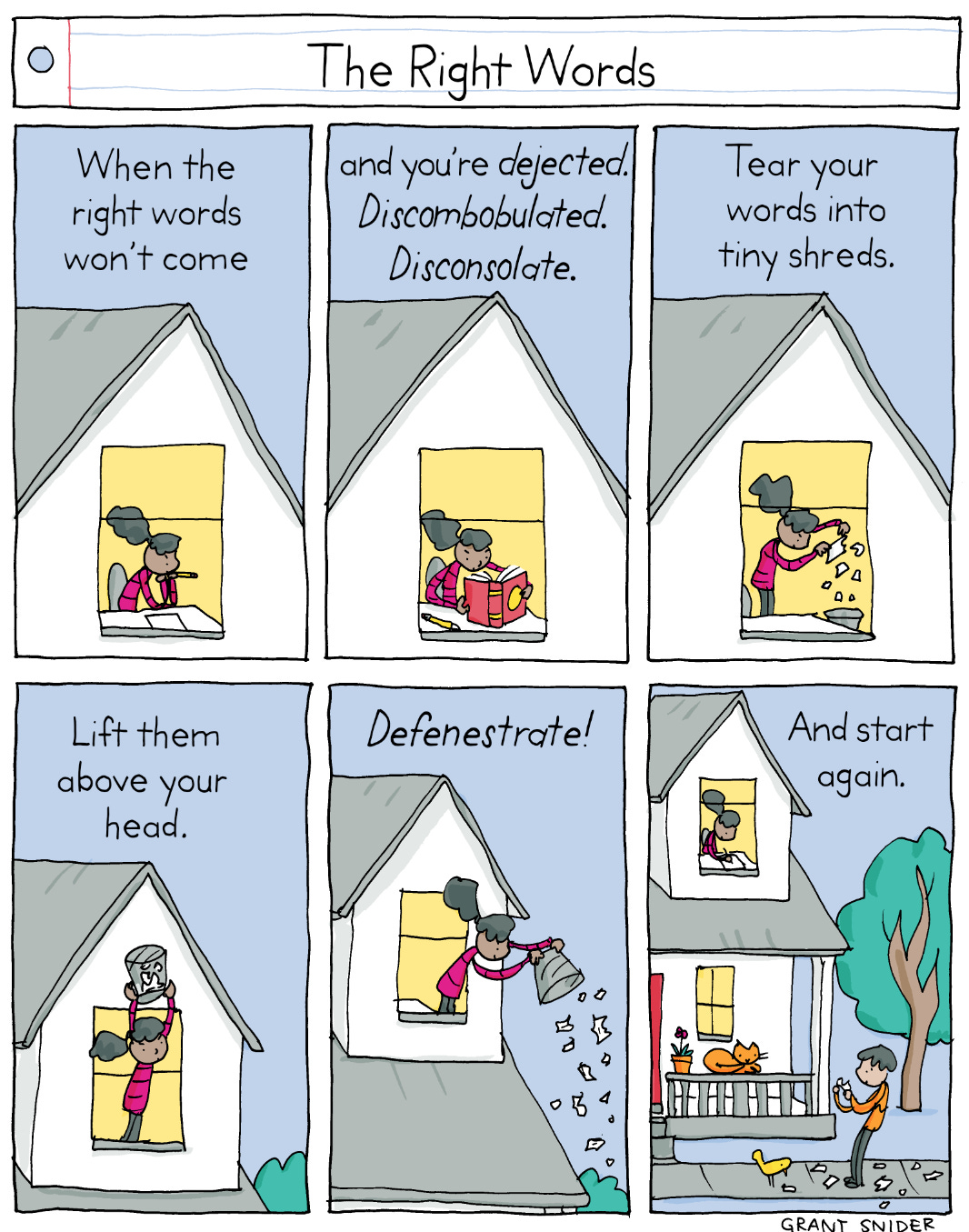Random Words
Words of Wonder #9
Apophenia
The human brain is a pattern-making machine, always looking for connections, telling stories, and building meaning. Sometimes we get it right. Sometimes we over-reach. Pareidolia is a visual form of apophenia.
Who hasn’t looked for the man in the moon? Or listened to Dark Side of the Moon while watching The Wizard of Oz? Or suspected that a full moon leads to lunacy? All examples of apophenia.
“Finding meaning in randomness”—a worthy definition for life itself.
Liminal
The state between sleeping and waking, when you’re not quite sure what’s reality and what’s a dream. The time between night and day when the light fades and shadows recede (also known as the gloaming). Those awkward transitional years between childhood and adulthood—adolescence is a liminal age.
The word liminal can also be used to describe an actual place. There’s a plethora of tweets and reddit posts devoted to images of liminal spaces. An empty school hallway after hours. An airport terminal. An abandoned mall. A park on a cold, foggy morning.
Liminal can also mean barely perceptible by the senses. It’s a step above subliminal: a sensation below the threshold of awareness.
Aleatoric
A Jackson Pollock painting of splattered colors. A John Cage piece of “indeterminate music.” The artwork of the Surrealists and the Dadaists. Brian Eno’s Oblique Strategies, a series of random prompts use to generate solutions to creative problems. (My favorite: Do nothing for as long as possible.)
Aleatoric comes from alea, the Latin word for dice.
Randomness helps free the mind to make unexpected connections. And if the artwork doesn’t quite make sense, so what? The audience will use apophenia to create their own meaning.
How exciting to compose a poem by writing a list of words on paper, cutting them out, and tossing them into the air. Which brings us to our next word…
Defenestrate
Writing can be frustrating. A busy morning of writing may lead to a strong urge in the afternoon to destroy all the morning’s work. You look around for the nearest fenestration—a word meaning a window, door, or skylight. Wouldn’t it be great to see all your imperfect words scattered to the breeze?
Resist the urge. Instead, tuck the troublesome piece of writing away in a cool, dry, dark place. A desk drawer, for instance. Open the drawer a week later. Or a month. Or a year. See how it looks different? Maybe you can make something of it.
Here’s a bonus poetry comic inspired by this word. May you always find the right words in your writing. And when you don’t, may you find the courage to revise them until you get them just right.
POETRY COMICS IS OUT NEXT WEEK!!! (Please excuse my shouting.)
I’m thrilled to see it go out into the world, and I hope get as much joy from reading it as I did from making it. There’s still time to pre-order and get a signed print to go with it. Psst—if you purchase it from my wonderful indie bookstore, Watermark Books & Cafe, I’ll add a custom doodle of your request on the title page.








'Liminal' was also used to describe the spaces inside Gothic churches, as a transition between the material and spiritual realm. I talk about this in my history of architecture classes. I love the sound of it!
Re: apophenia
My grandfather owned a lumber yard, so I was often around wood. I was always looking for patterns and images in the grain of the wood, especially the plywood. I even thought about making that an art project: buying pieces of plywood and painting images solely based on the patterns in the grain. I still think it is a fun idea.